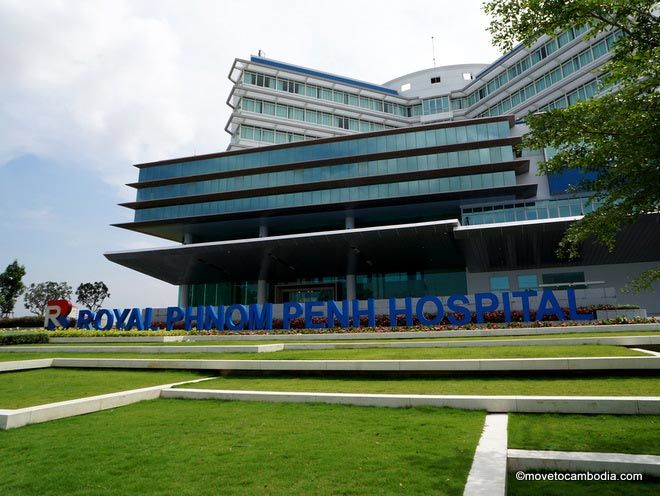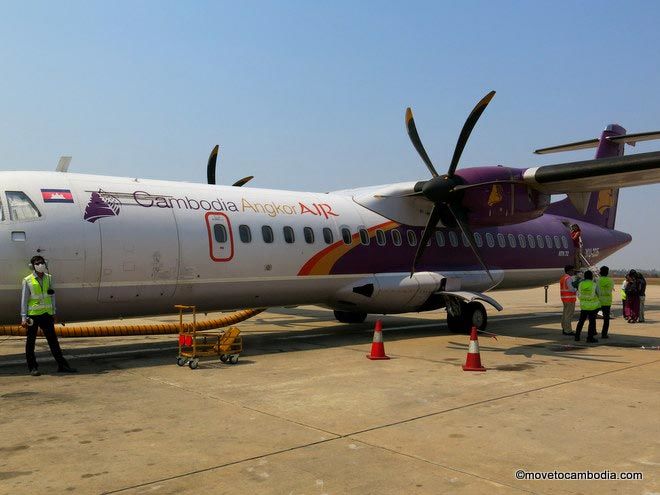Dual pricing based on race is very common in Cambodia, from the bus companies who charge white faces more to the hospitals that have one rate for Khmers and another for foreigners. Even the government-owned airline has one fare for Cambodians and another, much higher fare for everyone else. This is frustrating on many levels, not least when it’s foreign-owned businesses that are perpetuating dual pricing. Here are some of the most frequently cited arguments in favor of dual pricing — debunked.

At fancy hospitals there is one price for foreigners and one price for Cambodians. Even with the reduced rate, care is out of reach for poor Cambodians.
But Cambodians are poor
It’s true that Cambodians, by and large, are poor. And it’s also true that most expats are better off than most rural Cambodians. But it’s important to remember how outdated is the oversimplification that Cambodians are poor and Westerners are rich. These days the streets of Phnom Penh are clogged with gas-guzzling Lexus SUVs, and they are driven by rich Khmers, not Westerners. Perhaps just as surprising, there are Western expats sleeping on those very same streets.
Pricing based on race is a blunt instrument, and one that has failed. This failure grows more apparent as the Khmer riche get richer and the average expat is no longer on a generous relocation package — these days, expats are just as likely to work a “regular” job as anyone else. The wealthiest 1 percent in Cambodia is made up not of Westerners, but rather of the Khmer elite and (some) Asian expats. While most expats are solidly middle class, they are still leagues behind the Khmer upper class and elite, financially speaking. And much of Cambodia’s dual pricing benefits the Khmer upper and middle class and has no impact on the lives of the poor; you won’t find subsistence farmers getting a price break on yoga classes or on flights to Bangkok. These benefits go to those who are already privileged and do nothing for those who are truly in need.
Dual pricing is based on nationality, not on race
First off, Cambodian nationality is, for the most part, based on race (non-Vietnamese minority tribes are the exception). Any child of a Cambodian mother is granted Cambodian citizenship, regardless of where he or she is born. The child of non-Cambodians, though born and raised in Cambodia, is not granted Cambodian citizenship. Ethnically Vietnamese families who have lived in Cambodia for generations are, for all intents and purposes, stateless as far as the Cambodian government is concerned. So the argument that the dual-pricing system is not racist because it is based on nationality is flawed, because there is no attainable path to Cambodian citizenship for non-Cambodians (and I don’t call paying a $50,000 “facilitation fee” attainable).
Moreover, non-Cambodian Asians often benefit from the dual pricing plan, paying the local rate even when they don’t speak much Khmer and are citizens of Western countries. In practice, actual nationality seems unimportant; looking Khmer matters more. Khmer-Americans are also given the “local” price by many businesses, whether or not they have Cambodian passports.

Airlines one price for Cambodians and another price for non-Cambodians.
But tourists should subsidize things like national parks for the locals
I don’t disagree, but there are other, more sensible ways to accomplish this. In the Philippines, I went to national attractions that had one price for locals and one price for tourists — and anyone with a long-stay visa was counted as a local. In Cambodia, on the other hand, anyone who looks like a Cambodian gets the local price, even if they’re tourists, while long-time residents who don’t look Cambodian are charged as foreigners. Thus Americans with one Cambodian parent are given free passes to the Angkor Archaeological Park, even if they’ve never set foot in the country before. For everything from bus tickets to meal prices, plane tickets, entrance fees and more, it would be easy enough to separate locals from tourists by asking to see a long-stay visa or a lease.
The prices are meant to reward regulars versus tourists
If that’s the case, reward the regulars, or define locals based on residency. As things now stand, a Cambodian-American visiting the country for the first time will get a lower price on a bus ticket or flight than an expat who makes the same trip five times a month.
Maybe it’s unfair, but right now dual pricing is necessary to help Cambodia develop
Some businesses may be eager to help poor Cambodians, which is admirable, but these pricing policies only perpetuate a tradition of long-standing, entrenched racism in Cambodia, which ultimately helps no one. Instead it serves to deepen the divide between expats and locals. That divide is perpetuated by Cambodians when they treat foreigners like cash registers and by expats when they pay Cambodian staff far less than they pay their foreign employees. On both sides, the disparity is based on the idea that Cambodians need special treatment, whether that be lower prices or additional training.
On a more immediate level, if a business can charge a foreigner twice as much as it charges a Cambodian, at a certain point Cambodians will be shut out of the market. Why bother selling your widget to a local when, if you just wait around, you’ll make twice as much by selling to a foreigner?
But it’s only 2,000 riel!
Since this was first published, many people have pointed out that the price difference between what locals and foreigners are charged for in tuk tuk rides or vegetables in the market is very small. That’s true, and that sort of dual pricing is not what bothers me, particularly since it’s just as often based on perceived wealth as it is on race. What does bother me is institutionalized dual pricing, for flights, hospitals, yoga classes, etc., where there’s one price for Cambodians and a different price for non-Cambodians that is non-negotiable. When pricing like this is institutionalized, learning Khmer and whining “tlay na!” won’t change anything. If you are not Cambodian you will never get the Cambodian price for flights, no matter how long you live in this country.
(As an aside, I have heard that the few Westerners who do possess a Cambodian passport have difficulty entering the Angkor temples for free, but overseas Cambodians without a Cambodian passport are allowed in without question. Tell me again that it’s based on nationality and not race.)
This sort of dual pricing benefits only rich Cambodians who clearly need no help in maintaining their wealth, and has no effect on those wealthy expats for whom an extra $50 for a plane ticket is chump change. Poor Cambodians rarely benefit from these policies, apart from perhaps getting free tickets to the Angkor Archaeological Park. And that benefit would not disappear if all residents, foreigners included, were given the local rate. Poor Cambodians don’t fly on Cambodia Angkor Air, and they get no benefit from a wealthy Khmer getting a reduced rate.
The Cambodian economy would not crumble if instead of having prices based on Cambodian versus non-Cambodia, prices were based on resident versus non-resident. When you see dual pricing based on race, complain. When at all possible, avoid companies that use it.
tl;dr Institutionalized dual pricing on things like airline tickets, hospitals, yoga classes, and bus tickets that are based solely on race and nationality are wrong. Tiered pricing based on residency versus non-residency would allow long-term residents — who are a tiny fraction of the foreigners who visit Cambodia — to pay the local price, without raising prices for Cambodians.
One of the worst consequences of the rampant dual pricing in Cambodia is that I simply don’t trust Khmer people. I usually assume they are swindling me. They seem to find it funny. I don’t think it’s funny. I find it rude and racist.
The prices in Cambodia are already too high. Basic foods cost almost double what you’d pay in Thailand or Vietnam. One wonders if their constant scheming is what is driving up prices for their own people. Many Cambodians have certainly done well for themselves judging by the cars they drive. Hard not to see a pattern there.
Phnom Penh safari too does dual pricing. I tried to explain them that we are paying taxes to your government, we work here. She said I’m sorry this is our policy. It’d be surprising if these guys be sensible
Many people talk about the dual pricing at Angkor but there is no dual pricing at Angkor, the locals do not pay anything. There is only one price and that is for the foreigner. Paying such a high price would be justified if it was spent on improvement instead of going into rich people’s pockets. I have visited various such places in Cambodia where there is precious little to show for to the money and when there is it is not in preservation but office structures etc. for those in charge of the budget.
Dual pricing in restaurants etc. is just plain and simple racism and should be illegal.
The author makes a valid point. What is surprising and disturbing are the replies that are happy to go along and even defend this abusive and racist attitude toward foreigners.
To those that think it’s okay would you say the same about visitors to your own country? The excuse that they are poor so it’s alright is simply condoning and enabling the abuse.
It also shows a lack of thought and respect toward foreigners who want to be treated equally.
The continual references to “yoga classes” gave the game away. Really, who cares about dual pricing? I’ll tell you: western lefty tree-huggers with plenty of disposable income but with a huge chip on their shoulders that they are not accepted as “locals”. The rest of us couldn’t give a shit anbd pay the difference gladly. knowing it doesn’t really matter anyway.
There was no mention of “yoga classes”. You’re just an idiot.
There was, but only because things like dual pricing on things like yoga classes seem the hardest to defend.
Honestly, wealthy liberals seem to be the ones defending dual-pricing, which is consistent with their views on everything related to the developing world: Westerners = evil, developing countries = beyond reproach.